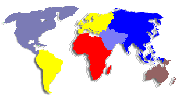|
|
|||||||||||||||||||||||||||||||||||||
|
|
|||||||||||||||||||||||||||||||||||||
 |
||
|
On the Proliferation of Scientific Knowledge HENRY A. WALLACE SEPTEMBER 24, 1945
Dear Mr. President: You have asked for the comment, in writing, of each cabinet officer on the proposal submitted by Secretary Stimson for the free and continuous exchange of scientific information (not industrial blueprints and engineering “know-how”) concerning atomic energy between all of the United Nations. I agreed with Henry Stimson. At the present time, with the publication of the Smyth report and other published information, there are no substantial scientific secrets that would serve as obstacles to the production of atomic bombs by other nations. Of this I am assured by the most competent scientists who know the facts. We have not only already made public much of the scientific information about the atomic bomb, but above all with the authorization of the War Department we have indicated the road others must travel in order to reach the results we have obtained. With respect to future scientific developments I am confident that both the United States and the world will gain by the free interchange of scientific information. In fact, there is danger that in attempting to maintain secrecy about these scientific developments we will, in the long run, as a prominent scientist recently put it, be indulging “in the erroneous hope of being safe behind a scientific Maginot Line.” The nature of science and the present state of knowledge in other countries are such that there is no possible way of preventing other nations from repeating what we have done ar surpassing it within five or six years. If the United States, England, and Canada act the part of the dog in the manger on this matter, the other nations will come to hate and fear all Anglo -Saxons without our having gained anything thereby. The world will be divided into two camps with the non-Anglo-Saxon world eventually superior in population, resources, and scientific knowledge. We have no reason to fear loss of our present leadership through the free interchange of scientific information. On the other hand, we have every reason to avoid a shortsighted and unsound attitude which will invoke the hostility of the rest of the world. In my opinion, the quicker we share our scientific knowledge (not industrial and engineering information) the greater will be the chance that we can achieve genuine and durable world cooperation. Such action would be interpreted as a generous gesture on our part and lay the foundation for sound international agreements that would assure the control and development of atomic energy for peaceful use rather than destruction. The announcement of our policy of disclosing all scientific information relating to atomic energy could be made in conjunction with other steps designed to arrive at international regulation relating to atomic weapons. I would regard this as indispensable for our own security and international peace. I should like to stress that the present situation is a dangerous one and calls for early action. The danger will increase and our position and that of international security will further deteriorate if we continue to follow our present course of maintaining useless secrecy and at the same time building up a stockpile of atomic bombs. So far as Russia is concerned, I would hope that we could make arrangements for as many Americans going to Russia to study or work in the laboratories and universities as there are Russians coming here. We cannot have a truly effective scientific interchange unless this is done. Hitherto the Russians have learned much more from us than we from them. This is chiefly because we had much to teach but it is also because we didn’t take sufficient advantage of the invitations extended to us. The Russian scientific progress is certain to be very much faster in the future than in the past. Russia has all the potentialities of a young and vigorous nation. To maintain peaceful relations with her we must keep in the closest possible touch with her scientific , agricultural, business, and cultural development. In this way we can both guard ourselves and gain a true friend. After writing the above I have had the opportunity to listen to discussions of a large number of the outstanding scientists in this field. The views which they expressed are similar to those at which I had arrived independently, as is indicated by the enclosed statements from five American scientists, three of whom are Nobel Prize winners, and four of whom were intimately connected with the atomic bomb project. The statement by Dr. Szilard, who together with Dr. Fermi and Dr. Einstein was most responsible for moving President Roosevelt to action on the atomic bomb in the fall of 1939, emphasizes even more than the statement by Dr. Fermi the destructive possibilities of atomic energy. Dr. Franck’s statement accurately reflects the consensus of the scientists who discussed the subject at the meeting which I attended. Dr. Daniels’ observations illustrate the types of problems with which the scientists are now concerned. In light of the above, I support Henry Stimson in his proposal for the free interchange of scientific information concerning atomic energy... |
||
